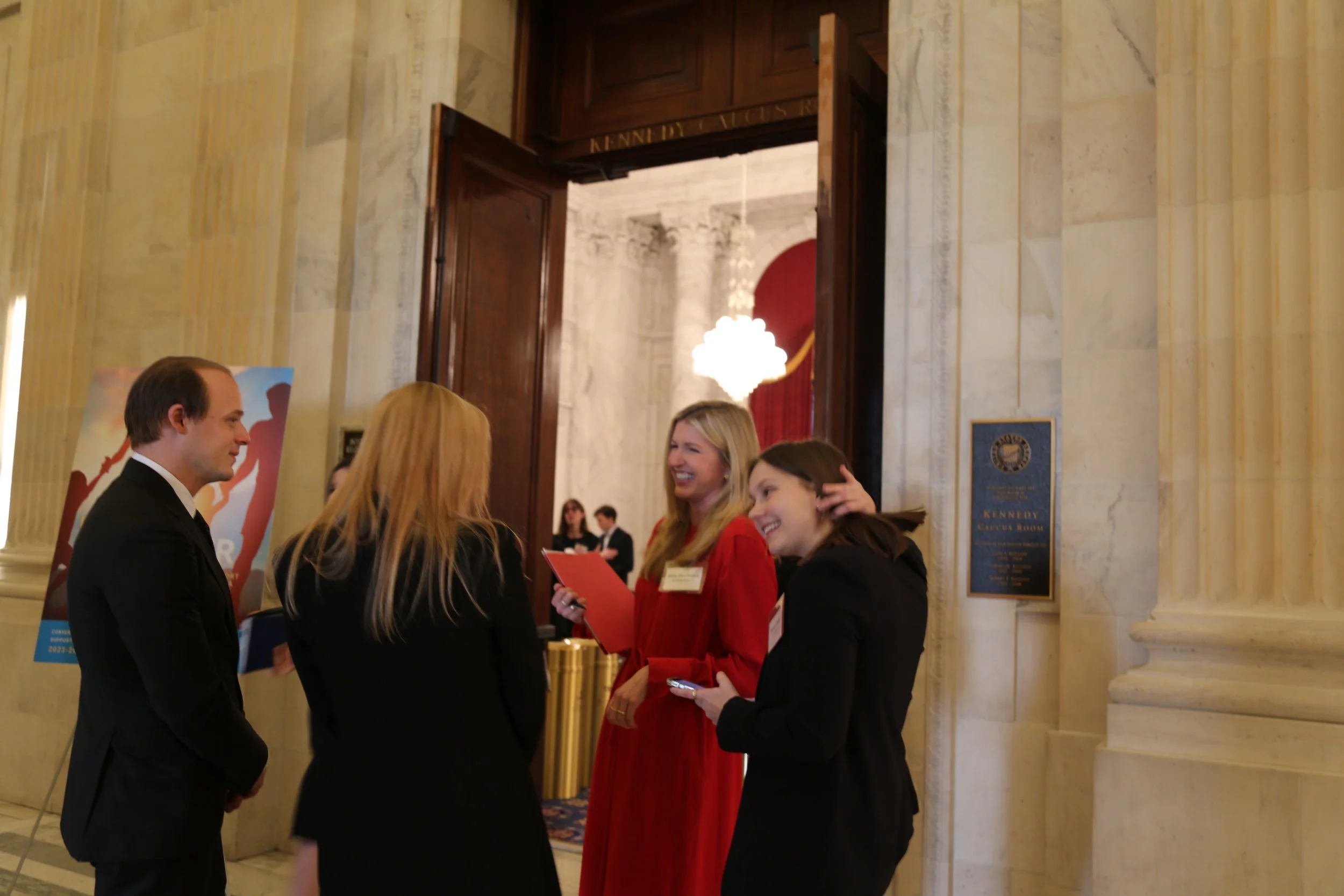Bringing together 32 diverse leaders in family policy, the Convergence Collaborative on Supports for Working Families released recommendations for federal policymakers, states, employers, and philanthropy to support families across party lines.
WASHINGTON, Feb. 6, 2024 /PRNewswire/ -- Convergence Center for Policy Resolution released a new Blueprint for Action with consensus solutions for tackling deep challenges facing American families with young children. The Blueprint release will be accompanied by a public reception on Capitol Hill tonight featuring remarks from Senator Bill Cassidy (R-LA) and Senator Kirsten Gillibrand (D-NY). The process of this Collaborative was featured in The New York Times article, by Jessica Grose, 'Couples Therapy', but for Politics.
Forged by more than 30 leaders spanning the political spectrum and from very different professional domains and life experiences, the recommendations aim to change the story around parenting in the US, rethink cash support, ensure a wider variety of high-quality care options, and better support families with new children.
"Leading the most ideologically and sectorally diverse group dedicated to addressing family policy in recent decades has been an immense honor," said Abby McCloskey, Director of the Convergence Collaborative on Supports for Working Families and Founder of McCloskey Policy LLC. "Recent events, such as the expiration of pandemic-era support for families, the setback in passing the Biden Administration's Build Back Better proposal, and the overturning of Roe v. Wade — with states adopting radically different approaches in the aftermath — made it challenging to anticipate the outcomes of this diverse collaboration. I take great pride in the remarkable work the Collaborative has accomplished."
Convergence served as a neutral convenor for the Convergence Collaborative on Supports for Working Families. Convergence Collaboratives are inclusive and cooperative processes, informed by social science, in which diverse groups of leaders come together to build trust, forge higher-ground consensus solutions, and move forward in unlikely alliances to achieve constructive change on seemingly intractable issues.
"Parenthood in America is increasingly challenging, and the urgency to support our nation's working families cannot be overstated," said Convergence Interim CEO and seasoned consensus-builder, Mariah Levison. "As the consensus among our participants illustrates, there is a clear pathway for a diverse group of changemakers to strengthen support systems in America, ensuring the needs of both children and parents are met. These solutions will not only make it easier to raise our children well but also foster economic opportunity and community connectedness, which are both key to reducing our division."
This project was made possible thanks to the generous support of the David and Lucile Packard Foundation.
About Convergence Center for Policy Resolution
Convergence is the leading organization bridging divides to solve critical issues. Through our time-tested collaborative problem-solving methodology, we bring people together across ideological, political, and identity lines to improve the lives of Americans and strengthen democracy. For more information, visit convergencepolicy.org.
SOURCE Convergence Center for Policy Resolution







